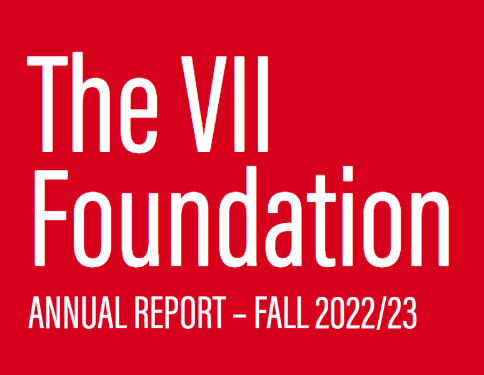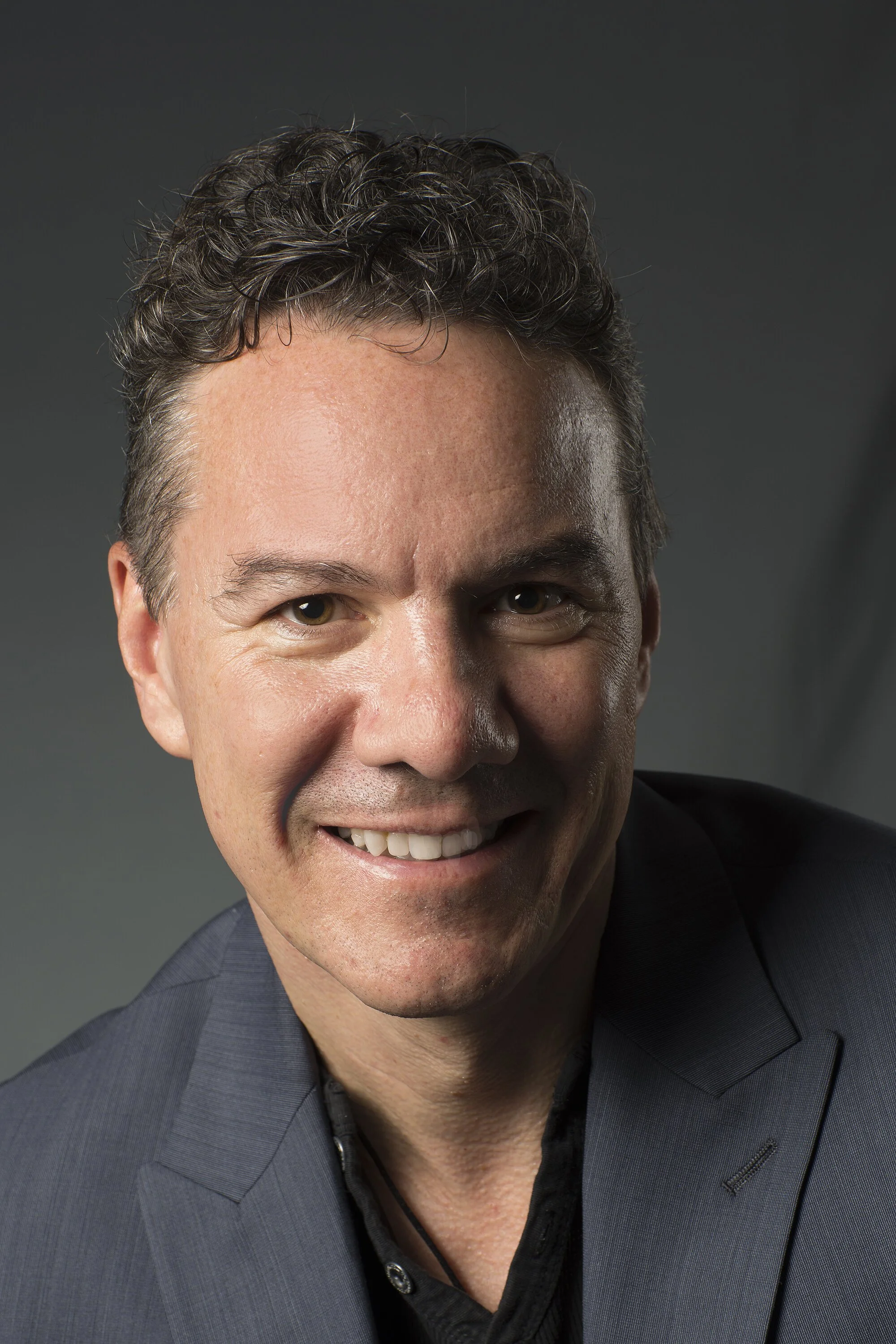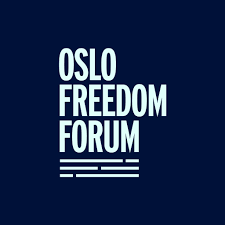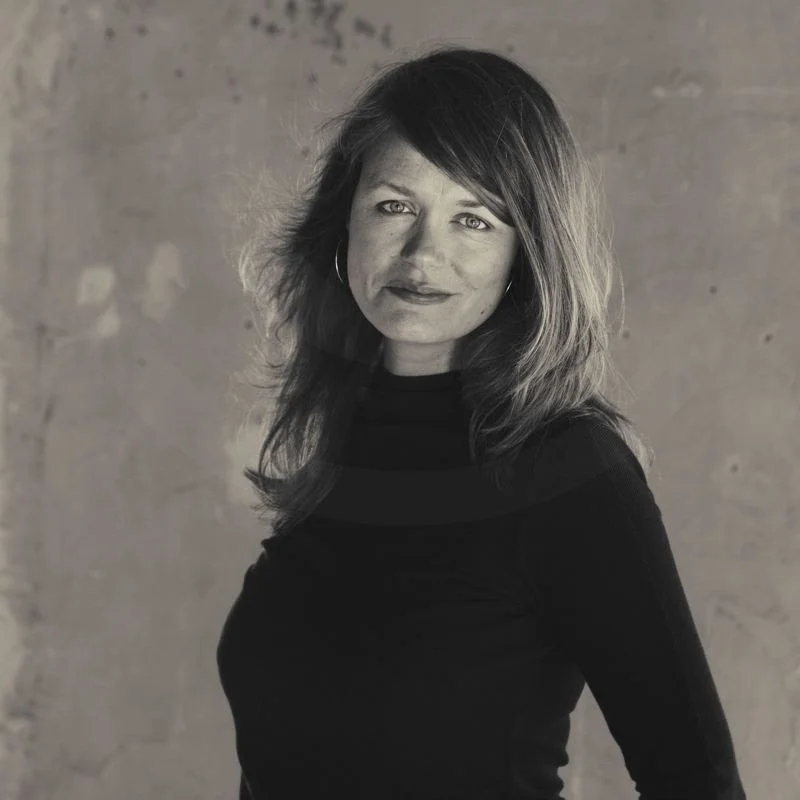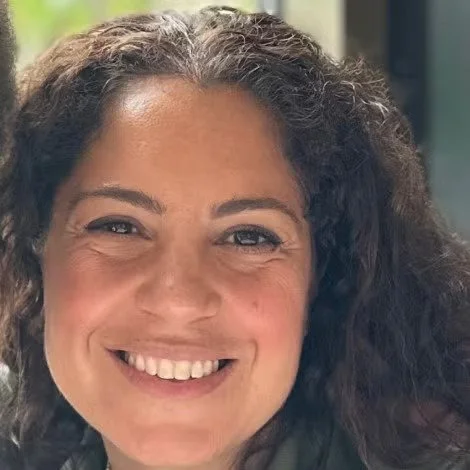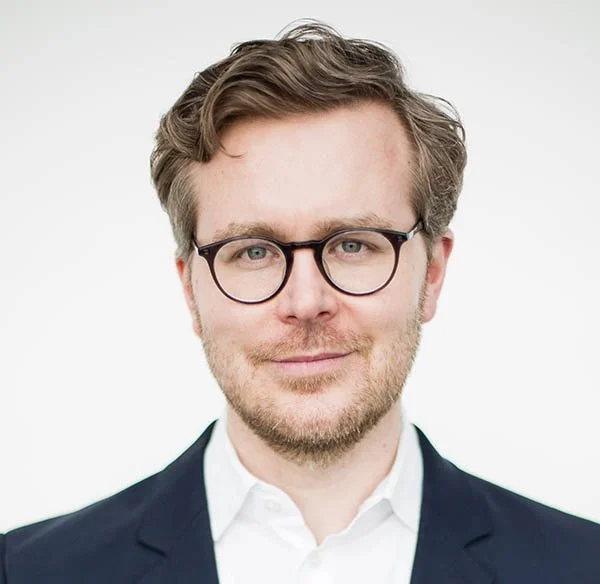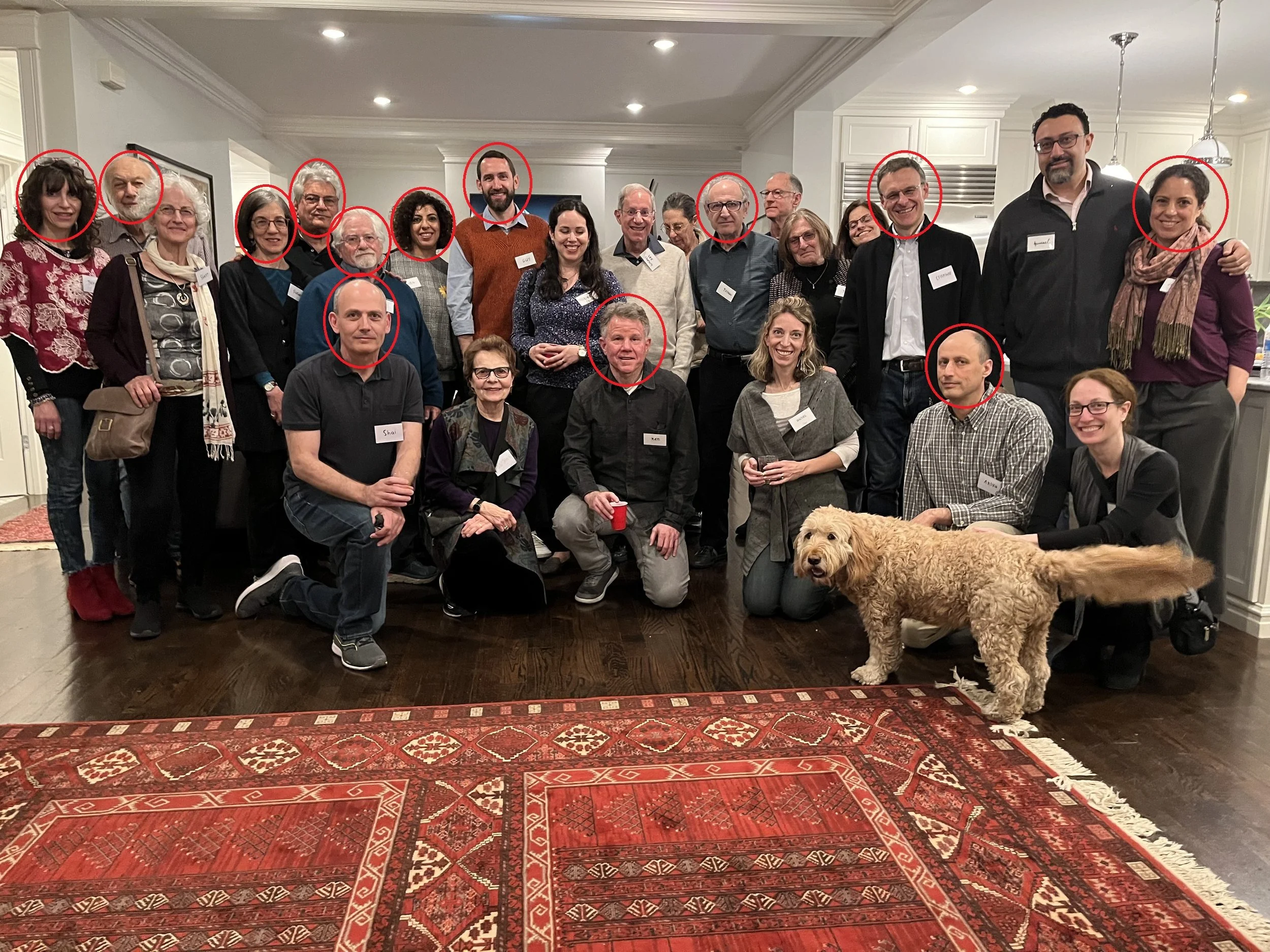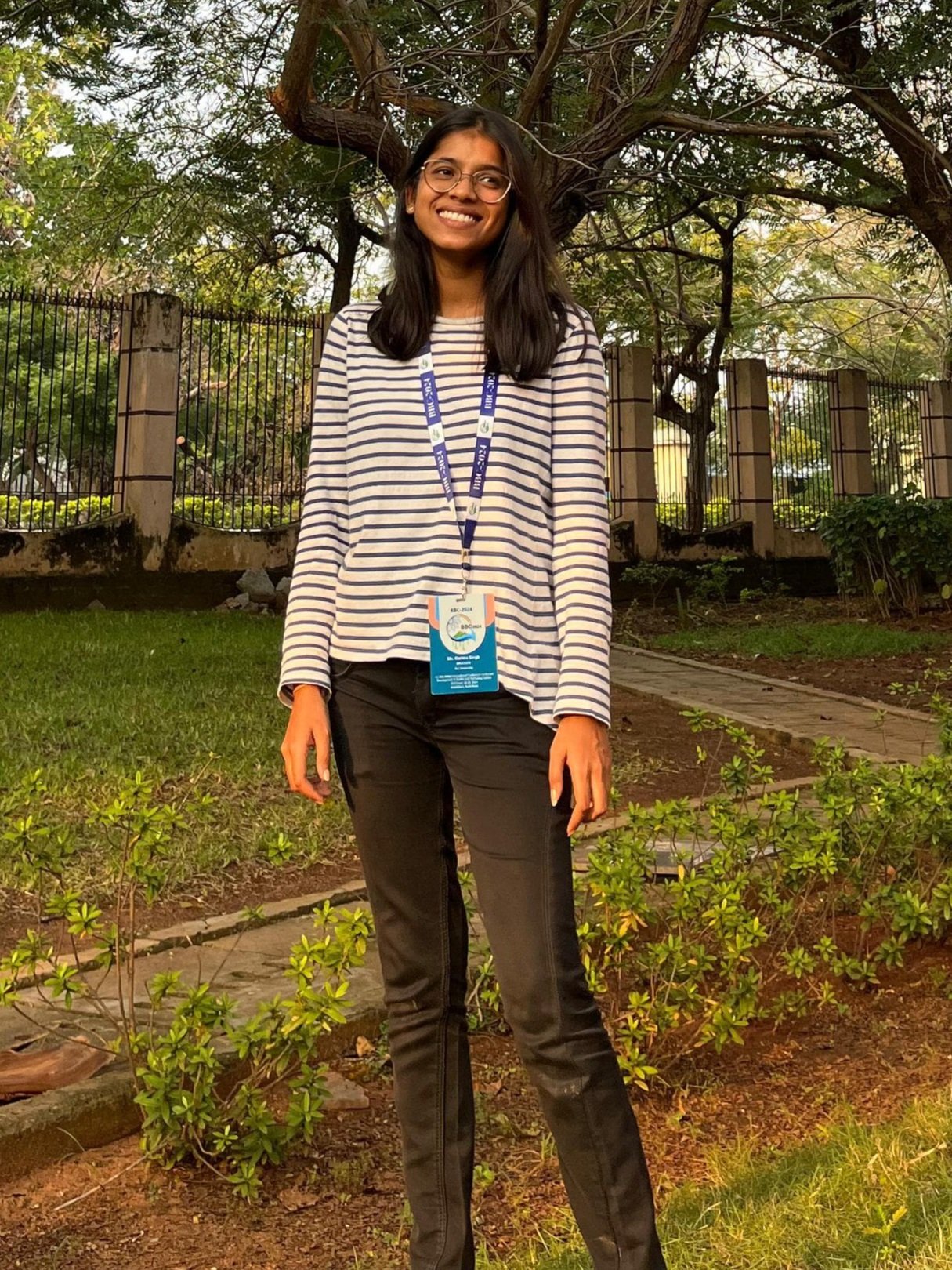The VII Foundation Hosts Panel on Documenting Environmental Crises
A sunrise seen through the trees of Gorongosa National Park in Mozambique on September 10, 2023.
© Guerchom Ndebo.
On July 11, The VII Foundation in Arles hosted a timely and vital discussion titled "Documenting Environmental Crises: Repression, Resistance, Solutions." The event, held both in-person and online at 1700 CEST, brought together leading voices from the worlds of activism, conservation, filmmaking, and photojournalism to examine the intersection of environmental documentation and the growing repression of climate activism worldwide.
The panel featured:
Mathieu Asselin, social activist and artist
Sébastien Mabile, vice-president of the French committee of the International Union for Conservation of Nature (IUCN)
Jacqueline Farmer, award-winning filmmaker
Guerchom Ndebo, VII Community member and documentary photographer
Moderated by Dr. David Campbell, the session addressed how visual storytelling can go beyond simply documenting climate-related destruction. The conversation emphasized the need for solution-oriented approaches in visual reporting — not only to highlight resistance movements but also to inform and inspire actionable change.
In an era marked by intensifying climate impacts and escalating threats to environmental defenders, the discussion called attention to the responsibilities and possibilities of media practitioners in shaping public understanding and advocacy.
Light refreshments were served at the venue, and remote participants were able to engage with the discussion via an online registration portal.
For more information on upcoming events or to view the recording, please visit The VII Foundation’s website.
Special Issue of the New England Journal of Public Policy Explores How Wars End
The latest issue of the New England Journal of Public Policy (Volume 37, Issue 1) focuses on one of the most urgent and complex questions of our time: how wars come to an end. Titled “Ending Wars”, this special edition is guest edited once again by Lord John Alderdice, a member of the House of Lords Select Committee on International Relations and Executive Chairman of the Changing Character of War Centre at Pembroke College, University of Oxford.
This volume builds on the Journal’s previous issue, which explored the changing character of war and peacemaking. Together, these editions offer a layered and interdisciplinary understanding of conflict resolution and the fragile transition from violence to peace.
The editorial team includes:
Editor: Padraig O’Malley, noted for his work in divided societies,
Guest Editor: Lord John Alderdice,
Design Editor: Paul Cain,
Copy Editor: K. Rhett Nichols,
Citation Editor: Erin K. Maher.
Readers are encouraged to explore the full issue here and reflect on the policy implications of ending contemporary wars. For those interested in additional context and scholarship, past editions of the New England Journal of Public Policy are also accessible through the University of Massachusetts Boston’s portal.
Updating the Kwajalein Atoll Disaster Plan: A Call for Collaboration
The Kwajalein Atoll community is taking critical steps toward strengthening its disaster preparedness through a collaborative update of its disaster response plan. As the Asia-Pacific region continues to experience 40% of the world’s natural disasters—and accounts for 60% of global disaster-related deaths—the urgency of coordinated civil-military readiness cannot be overstated.
With USAID no longer operating in the region and the U.S. having exited the World Health Organization (WHO), any future American support in the event of crises—including pandemics or natural disasters—is expected to come from the U.S. military. In response, stakeholders are revisiting the original 1988 English-language disaster plan for Kwajalein Atoll with the support of Lt. Col. (ret.) James Faumuina, former Commanding Officer of Hawaii’s National Guard CBRNE Technical Response Team.
One key innovation being explored is the integration of telehealth solutions powered by Starlink. VSee, a telehealth company, is helping to develop an amphibious medical drone network that could provide remote care across the Marshall Islands. If successful, this pilot—tentatively scheduled for demonstration in summer 2025—will pave the way for a follow-up CSAR (combat search and rescue) simulation called Kennedy’s Coconut, potentially running alongside RIMPAC 2026.
This community-led effort is anchored in a “crawl-walk-run” approach, aiming first to assess the current state of preparedness as of July 2025 and build a culture of continuous improvement. Participants are encouraged to review the original disaster plan and related materials, available here, and join the review process.
As Gregg writes: “Our goal is simply to assess where we are today... and begin making a habit of improving a little bit more each year.”
Those interested in supporting or participating in this review are welcome to join the initiative.
Reflections and Growth at the VII Foundation
As the landscape of journalism continues to shift, the VII Foundation remains committed to fostering ethical storytelling in times of crisis. In a recent update, Gary Knight, co-founder of the foundation, shared reflections on the evolving responsibilities of journalists amid global conflict and trauma. No longer limited to bearing witness, today’s journalists are also expected to navigate public discourse and advocacy, often while still in training.
Despite these complexities, the VII Foundation reports a strong year of growth and engagement. Based in the south of France—with easy access from Paris and Marseille—the Foundation has hosted students from around the world, equipping them with the skills and ethical grounding needed for contemporary journalism. Gary notes that the current cohort approaches their work with a level of awareness and adaptability that surpasses even his early career experiences.
The Foundation’s recently released annual review outlines its expanding initiatives, educational programs, and ongoing commitment to supporting visual journalism in regions impacted by war and repression. Accompanying this is a fundraising brief for those interested in supporting its mission. These documents underscore how the VII Foundation continues to build spaces for training, collaboration, and critical reflection in a time when responsible reporting is more important than ever.
Supporters and friends are encouraged to share the foundation’s latest materials across their networks and are warmly invited to visit and witness the ongoing work firsthand.
New Study by Dr. Turhan Canli and Mark Cameron Highlights Civilian Trauma in Syrian Warzone
After five years of dedicated research and collaboration, a landmark scientific paper documenting trauma in civilians living through the Syrian conflict has finally been published. The study, initiated during a Harvard certification course on refugee trauma, represents a partnership between Dr. Turhan Canli, Professor of Psychology and Psychiatry at Stony Brook University, and Mark Cameron, a Canadian co-founder of an international medical NGO working in Syria.
The NGO collected self-reported trauma data from civilians inside an active warzone—an effort rarely attempted due to safety and logistical challenges. Dr. Canli led the data analysis and academic write-up, resulting in a peer-reviewed publication that went live just 48 hours ago and has already surpassed 400 reads—an unusually high number in the academic sphere.
The research offers a critical foundation for understanding mental health needs in conflict zones and is already helping catalyze new conversations on how to design effective PTSD interventions in similar settings. Follow-up projects are now being planned in Ukraine, Yemen, Sudan, and Gaza.
As part of these next steps, Dr. Canli and his team are actively seeking support—both in terms of fundraising and field expertise. They are particularly interested in identifying mental health practitioners who can assist in data collection efforts in Gaza, where the psychological toll of war is mounting and under-documented.
This project serves as a vital reminder that amidst destruction, efforts to preserve and restore mental health remain both possible and necessary.
For more about Dr. Canli’s work, visit Stony Brook University Faculty Page.
Oslo Freedom Forum Talks
The Oslo Freedom Forum, an annual event hosted by the Human Rights Foundation since 2009, features a wide range of global speakers—dissidents, activists, journalists, technologists, artists, and former heads of state—sharing firsthand accounts from regions experiencing repression. This year’s talks, available on the OFF website, cover urgent issues of democracy, free expression, and digital resilience.
Notable recent presentations include “A Daring Escape Across the Ocean” by Kim Yumi, the story of maritime flight to freedom; “Mozambique’s People’s President”, in conversation with Venâncio Mondlane; “No Retreat, No Surrender” by Maria Sarungi Tsehai; and a panel featuring Pavel Durov in discussion with Thor Halvorssen. Each talk underscores the human experience behind headlines—whether fleeing authoritarian regimes, challenging oppressive governments, or harnessing technology for free speech.
The forum explores not only personal narratives but also themes like digital surveillance, open-source movements, and human-rights advocacy in closed societies. OFF’s programming structure blends rapid-fire TED-style presentations with targeted panels and workshops to foster collaboration and innovation.
Viewers can access complete OFF talk archives—including recent sessions on topics such as sanctions debates, conflict resolution, and digital freedom—via the official OFF website and YouTube channel . The availability of these resources enables global audiences to engage with frontline perspectives on pressing issues like Gaza, Nicaragua, Cambodia, and the digital free-speech crackdown in Uganda.
Explore the Oslo Freedom Forum’s collection of inspirational talks featuring global leaders, activists, and change makers here: https://oslofreedomforum.com/alltalks/
Revisiting Media Narratives in Conflict: Bette Dam on Afghanistan and Beyond
A new podcast episode revisits the Western media’s coverage of the war in Afghanistan, offering insights into how conflict narratives are shaped and often distorted. As global tensions rise following U.S. missile strikes on Iranian nuclear sites, the discussion serves as a timely reflection on past reporting failures and their ongoing implications.
Guest Bette Dam, a Dutch journalist who spent 15 years reporting from Afghanistan, began her career in 2006 embedded with the Dutch military. Over time, she observed a consistent omission of Afghan civilian perspectives in Western media coverage, resulting in a portrayal of Afghanistan as uniformly violent and unstable. One of the most critical oversights, Dam argues, was the media’s failure to report that the Taliban attempted to surrender as early as December 2001.
In 2024, Dam completed a PhD at the Vrije Universiteit in Brussels focusing on the role of Western media in conflict coverage. In 2025, she launched UNHEARD, a research initiative supported by the Tow Center at Columbia University. The project uses artificial intelligence to examine who is quoted in conflict reporting, aiming to surface narratives that are often overlooked or excluded. Dam is also the author of Looking for the Enemy: Mullah Omar and the Unknown Taliban and A Man in a Motorcycle: How Hamid Karzai Came to Power.
The podcast is part of an ongoing series featuring journalists and peacebuilders working across a range of global contexts—from negotiations in Colombia and anti-violence efforts in Chicago to women’s rights activism during the Syrian civil war. The series emphasizes the importance of understanding conflict through grounded, human-centered storytelling.
Listeners are encouraged to explore the episode and support the podcast’s independent journalism through tax-deductible contributions.
UN Estimates 17,000 Gaza Children Left Unaccompanied Amid Ongoing Conflict
The United Nations Children’s Fund (UNICEF) estimates that approximately 17,000 children in the Gaza Strip have been left unaccompanied or separated from their families as a result of the ongoing conflict that began in October 2023. This figure accounts for about 1% of the 1.7 million displaced individuals currently within the enclave.
According to Jonathan Crickx, UNICEF’s chief of communication for the occupied Palestinian territories, the exact number of affected children is difficult to verify due to current conditions on the ground. Many children are reportedly arriving at medical facilities in a state of trauma or physical injury, and are often unable to provide their names.
Challenges in Family Reunification and Care
While it is common in conflict zones for extended families to care for unaccompanied children, the humanitarian situation in Gaza has made this increasingly difficult. Many families lack access to sufficient food, water, and shelter and are unable to take in additional dependents, even those from their own extended households.
UNICEF distinguishes between "separated children," who are without their parents, and "unaccompanied children," who are without both parents and other adult relatives.
Mental Health Needs Reach Critical Levels
UNICEF also reports a sharp rise in mental health needs among children across Gaza. Before the current conflict, an estimated 500,000 children required mental health or psychosocial support. That number has now more than doubled, with over one million children showing symptoms such as persistent anxiety, sleep disturbances, emotional dysregulation, and fear triggered by ongoing bombings.
Crickx described the mental health impact as widespread, noting that “almost all children” in Gaza now need psychological support.
Ongoing Humanitarian Conditions
Since the onset of hostilities in October 2023, the Palestinian Ministry of Health reports that over 27,100 people have been killed, including approximately 11,500 children. More than 66,200 individuals have been injured, and thousands remain missing.
Displacement continues to be a critical issue, with families repeatedly relocating due to military activity. Most displaced persons are now located in the southern governorate of Rafah, which has been identified by Israeli authorities as a future target of military operations. The displacement has led to communication breakdowns between family members and caregivers, particularly during network outages.
UNICEF Calls for Ceasefire
UNICEF has reiterated its call for a ceasefire, highlighting the urgent need to safely identify and reunite unaccompanied children with their relatives, deliver mental health services, and provide basic humanitarian aid. Crickx emphasized the necessity of stable conditions to assess the situation and deliver targeted interventions.
According to UNICEF, children have been severely affected despite having no direct involvement in the conflict. The agency stresses that all efforts must be made to ensure their protection and well-being in accordance with international humanitarian law.
Source:
Al Jazeera, “UN estimates 17,000 Gaza children left unaccompanied amid Israel’s war,” 2 February 2024.
Global Bitcoin Adoption Index Unveiled at Oslo Freedom Forum
At the 2025 Oslo Freedom Forum (OFF), Dr. Sarah Kreps—director of the Brooks School Tech Policy Institute and professor at Cornell University—launched the Global Bitcoin Adoption Index (GBAI), a comprehensive research initiative aimed at understanding how and why individuals across the world use Bitcoin, particularly under conditions of financial repression.
The GBAI is a collaborative effort supported by The Reynolds Foundation and the Human Rights Foundation (HRF). Surveys were administered to more than 25,000 participants in 25 countries, with a focus on authoritarian states such as Venezuela, Turkey, Nigeria, Egypt, and India. The survey data is complemented by 250 interviews with a diverse range of users, including small business owners, remittance senders, and activists.
Scope and Objectives of the GBAI
The Global Bitcoin Adoption Index has four primary objectives:
Understand Drivers of Adoption: Analyze usage patterns and motivations behind Bitcoin and stablecoin adoption.
Inform Policy and Innovation: Assist stakeholders—including policymakers and developers—in making data-driven decisions regarding regulation, product design, and education.
Promote Financial Inclusion: Highlight opportunities to expand financial access in regions underserved by traditional banking.
Increase Awareness: Provide reliable information on Bitcoin’s real-world applications and potential for improving financial freedom.
Unlike general surveys on “crypto” adoption, the GBAI focuses specifically on Bitcoin and stablecoins—tokens pegged to fiat currencies such as the U.S. dollar—avoiding broader classifications that include speculative digital assets.
Preliminary Findings: Usage in Fragile States
The initial findings from the GBAI suggest significant adoption of Bitcoin and stablecoins in countries facing high inflation, political repression, or limited access to traditional financial services. Key use cases include:
Preserving Value Amid Inflation: In Turkey and Argentina, citizens are using Bitcoin to hedge against currency depreciation.
Remittances Across Borders: In Venezuela and El Salvador, Bitcoin offers a faster and less monitored means of receiving funds.
Banking Alternatives for the Unbanked: In Nigeria and Brazil, individuals lacking bank access are using Bitcoin for savings and transactions.
Protection from Financial Surveillance: In Lebanon and Russia, citizens are adopting Bitcoin to safeguard assets from account freezes or currency controls.
These findings reflect a growing reliance on decentralized finance to overcome state-imposed financial restrictions and economic instability.
Policy Recommendations
Based on the data collected, Dr. Kreps and her team propose three policy directions:
Education for Financial Inclusion: Develop culturally adapted and country-specific programs to improve understanding of Bitcoin, with special attention to gender, age, and education disparities.
Support for Peer-to-Peer Systems: Maintain and expand tools for direct Bitcoin access, such as Lightning Network applications and self-custody wallets, to safeguard monetary freedom under financial censorship.
Pilot Bitcoin Remittance Systems: Collaborate with humanitarian organizations to test Bitcoin-based remittances as a complement to traditional systems, particularly in crisis zones.
Project Timeline and Support
The GBAI is scheduled for completion in May 2026. Upon release, the index is expected to provide valuable insights into Bitcoin’s real-world utility and guide future discussions on digital finance, regulatory frameworks, and financial rights under authoritarian rule.
The Human Rights Foundation (HRF), a nonpartisan organization focused on promoting rights in closed societies, is a primary partner in this initiative. Through its support, the GBAI aims to shed light on the intersection of digital currency and human rights in the modern geopolitical landscape.
Alex de Waal
Alex de Waal is the Executive Director of the World Peace Foundation. Considered one of the foremost experts on Sudan and the Horn of Africa, his scholarly work and practice has also probed humanitarian crisis and response, human rights, HIV/AIDS and governance in Africa, and conflict and peace-building. His latest book is Mass Starvation: The History and Future of Famine (Polity Press 2017). He is also he author of The Real Politics of the Horn of Africa (Polity Press, 2015), a full list of his publications is available below. Following a fellowship with the Global Equity Initiative at Harvard (2004-06), he worked with the Social Science Research Council as Director of the program on HIV/AIDS and Social Transformation, and led projects on conflict and humanitarian crises in Africa (2006-09). During 2005-06, de Waal was seconded to the African Union mediation team for Darfur and from 2009-11 served as senior adviser to the African Union High-Level Implementation Panel for Sudan, where he took on a number of roles in the negotiations leading to the independence of South Sudan. He was on the list of Foreign Policy’s 100 most influential public intellectuals in 2008 and Atlantic Monthly’s 27 “brave thinkers” in 2009.
Prof. Alex de Waal regularly teaches a course on Conflict in Africa at the Fletcher School, Tufts University. During this course, students should gain a deeper understanding of the nature of contemporary violent conflict in Africa. Students will be expected to master the key theoretical approaches to violence in Africa, and to become familiar with a number of important case studies. The focus is on the origins and nature of violence as well as policy responses and solutions. The course is inter-disciplinary and involves readings in political science, international relations, and social anthropology, while also touching on economics, environmental studies, and history.
Cristiano Bonino
Cristiano Bonino is proudly 100% Italian (from Turin, Piedmont), living in the Boston area, which has allowed him to broaden his experience, “hybridizing” through the balance of two cultures.
Before his career in travel, he worked as a personal financial planner in Italy, helping families manage their savings. The experience taught him how important it is not only to respect the value of money, but also, and above all, to care about the people he meets and works with through life!
Cristiano has been a devoted cyclist for decades. He sees the bicycle as an ideal way to visit a new place and, whenever possible, scouts new tour routes from the saddle.
In 2001, he started to design, sell, and guide cycling tours, mostly in Italy, with an American company, bringing his enthusiasm and energy to helping fellow travelers discover new foods, wines, cultures, and landscapes. Across many miles, Cristiano has honed his understanding of Italian regional distinctions, the importance of conviviality at the table, and the value of sharing the stories of our lives.
On moving to the U.S., he was at first surprised by how passionate many Americans are for Italy. It has helped him little by little to grow his pride in his heritage. He is happy to live in the U.S., provided that life and work allow him to return a few times a year to reconnect with roots, friends, foods, wines, recipes, and the special atmosphere of a country that, given local differences, could easily be called the “United Regions of Italy!”
In 2013, Cristiano launched Food.Stories.Travel., a small tour operator offering educational, guided journeys around the Mediterranean, by foot or by bicycle. Food.Stories.Travel. focuses on the specificity of place and on local farmers and foodmakers, hearing their stories and tasting their works.
Mona Mowafi
Mona Mowafi has more than 20 years of experience in global development, with a focus on health equity and social entrepreneurship. Most recently, Mona founded RISE Egypt, a global nonprofit catalyzing social entrepreneurship for development in Egypt. Having worked through the pains and privileges of leading a nonprofit that must navigate complex human as well as administrative labyrinths, Mona has found deep comfort and grounding in the practice of meditation and inner reflection in the continuous journey of becoming a transformational leader.
Prior to her adventures in the social entrepreneurship and leadership development space, Mona was a researcher and program manager promoting health equity in the U.S. and abroad. She holds a doctorate in Social Epidemiology from Harvard University and has received numerous awards for her work including the Judith O’Connor Award for emerging nonprofit leaders from Boardsource and a national leadership award from AmeriCorps Alums for her ongoing commitment to global development and service learning. With all this, Mona finds the most useful credential in this world to be that of kind human. She tries to abide by the motto she teaches her children, to be “kind, caring, and sharing,” with all else following from there. In her spare time, Mona loves to travel, read, row, and build bridges. She lives in Brookline, MA with her husband and two children, who are vying for a cat.
Frederik Obermaier
Frederik Obermaier, Germany, is a book author and Pulitzer Prize-winning investigative reporter. Together with his colleague Bastian Obermayer he founded the Munich-based investigative startup paper trail media. Exclusive publishing partners of paper trail media are the German magazine Der Spiegel, German public broadcaster ZDF, the Austrian daily Der Standard and the Swiss Tamedia group.
Obermaier was part of the ICIJ’s Offshore Leaks, Luxembourg Leaks, China Cables and other projects. Together with this colleague Bastian Obermayer, he initiated the Panama Papers, Bahamas Leaks and Paradise Papers investigations. He has received numerous honors for his work, including the CNN-Award, the Otto Brenner Preis, the renowned Wächterpreis, the Henri-Nannen-Prize, the Reporterpreis and the Helmut-Schmidt-Journalistenpreis.
He also jointly shared awards with his ICIJ colleagues including the Scripps Howard Awards, the George Polk Award for Business Reporting, the Barlett & Steele Award, the Investigative Reporters and Editors (IRE) Award and the 2017 Pulitzer Prize for Explanatory Reporting
For the Panama Papers, Obermaier was together with his colleagues Bastian Obermayer and Vanessa Wormer elected Germany's Journalist of the Year 2016. In 2017, he was also awarded the Murrey Marder-Fellowship in Watchdog Journalism at the Nieman Foundation at Harvard University.
Obermaier is a member of the jury of Reporters Without Borders’ Press Freedom Awards, co-founder of the Anti-Corruption Data Collective and board member of Arab Reporters for Investigative Journalism (ARIJ).
He has co-authored several books, including bestselling accounts of the so-called Ibiza Affair, which lead to snap elections in Austria, as well as The Panama Papers: Breaking the Story of How the Rich and Powerful Hide Their Money.
Nikos Passas
Nikos Passas is a Professor of Criminology and Criminal Justice at Northeastern University, who has made scholarly contributions to the understanding of complex global issues. His expertise encompasses the study of security, corruption, illicit financial and trade flows, sanctions, terrorism, and white-collar crime, among other critical areas. His work aligned him with Sherman Teichman, former Director of the Education for Public Inquiry and International Citizenship (EPIIC) program at Tufts University, a multidisciplinary platform dedicated to the rigorous examination of intricate global dilemmas. The program aimed to cultivate informed and engaged global citizens by connecting theoretical knowledge with practical applications through innovative curricula and projects. Their relationship started in the 1990s and continued over the years covering issues ranging from global crime, financial misconduct, security threats, “Europe in Turmoil”, as well as a collaboration with Professor Neva Goodwin on socially and economically harmful corporate practices. This initiative led to the publication of a book with the title “It’s Legal but it Ain’t Right Harmful Social Consequences of Legal Industries," published by the University of Michigan Press in 2004.”
Sherman and Nikos also collaborated at the time Professor Passas held the esteemed position of INSPIRE Fellow at Tufts University's Institute of Global Leadership. The INSPIRE program was designed to bring accomplished scholars and practitioners to the Tufts campus to deliver public and classroom lectures, as well as offer guidance on research and career paths. Moreover, in 2017, Professor Passas was bestowed with the Dr. Jean Mayer Global Citizenship Award by the Institute. This prestigious award recognizes individuals who have demonstrated a lifelong commitment to confronting global corruption and crime, coupled with courageous activism in exposing such practices. Finally, Sherman Teichman and Nikos Passas co-led a year-long workshop from 2017 to 2019 on the critical intersection of corruption and human rights. This initiative, while formally convened at the Carr Center for Human Rights Policy at Harvard Kennedy School.
Their collaboration continues currently within the framework of Trebuchet.
Starvation Conditions in Gaza – Findings from the IPC and Global Humanitarian Observers
According to recent analysis published in the London Review of Books by Alex de Waal (May 14, 2025), humanitarian conditions in Gaza have deteriorated to levels approaching famine. Following the imposition of a total blockade by Israel on 2 March 2025, and amid ongoing conflict, food availability in the region has been reduced to levels significantly below international standards for nutritional sufficiency.
The standard daily humanitarian ration is 2,100 calories per person. Estimates from humanitarian agencies suggest that the average availability in Gaza may have dropped to approximately 1,400 calories per person per day by mid-April, with further declines likely. Vulnerable populations—infants, pregnant and breastfeeding women, and those with special dietary needs—are most at risk. Reports indicate that individuals without access to informal networks or humanitarian assistance are experiencing extreme malnutrition and organ failure.
Data from Integrated Food Security Phase Classification (IPC)
Between 28 April and 6 May, the UN-backed Integrated Food Security Phase Classification (IPC) system conducted its fifth phone-based assessment of food security in Gaza since the onset of war nineteen months ago. Despite the challenges of data collection in an active conflict zone, the IPC's May 12 snapshot report estimated that:
925,000 people (44% of Gaza’s population) are in “emergency” acute food insecurity.
244,000 people (12%) are in “catastrophe” conditions—below the starvation threshold.
These figures are considered consistent with observed food stock depletion and restricted access to humanitarian aid.
Limited Coping Mechanisms and Restricted Mobility
Unlike famine-affected populations in regions such as Somalia or Sudan, Palestinians in Gaza face unique limitations. Israel retains full control over financial transactions, trade, humanitarian supplies, and movement. Traditional coping mechanisms—including foraging, remittance transfers, or internal migration—are not available. Gaza’s population remains unable to relocate or access alternative food sources, creating what analysts describe as a “starvation under siege” scenario.
Though Gaza has so far avoided mass outbreaks of disease due to high prewar vaccination rates, continued deprivation threatens public health infrastructure and increases vulnerability to communicable disease outbreaks in the future.
Surveillance-Based Aid and Infrastructure Collapse
Israel has proposed a new system for aid distribution, based on biometric screening and individual tracking. The plan involves notifying pre-approved recipients via SMS to collect aid from four fixed distribution centres, using facial recognition software for identity verification. According to leaked implementation outlines, this program would cover only 60% of the population and operate within a restricted geographic zone.
The approach has been described by observers as a form of “surveillance humanitarianism” and is viewed by some humanitarian experts as an adaptation of historical counterinsurgency methods. The UN Relief and Works Agency (UNRWA), previously the primary aid distributor, has been sidelined in favor of new mechanisms coordinated by private contractors and a proposed Gaza Humanitarian Foundation.
This program, even if scaled, does not address infrastructure needs for water, shelter, sanitation, healthcare, or electricity—all of which remain significantly impaired. Aid agencies previously operated approximately 400 distribution sites prior to the current blockade.
Legal and International Developments
On 28 April, the UN requested an advisory opinion from the International Court of Justice (ICJ) regarding Israel’s cooperation with UN humanitarian mechanisms. Israel declined to participate, rejecting the proceedings as biased. Of the 39 states that made presentations in The Hague, only the United States and Hungary supported Israel’s position. The U.S. invoked the 1948 Geneva Conventions but did not reference Israel’s obligations under later treaties such as the Genocide Convention.
The Genocide Convention (Article 2c) prohibits “deliberately inflicting on the group conditions of life calculated to bring about its physical destruction in whole or in part.” On this basis, the UN High Commissioner for Human Rights expressed concern in April 2025 that current conditions in Gaza may be approaching this threshold.
Humanitarian Risk Assessment and Outlook
The IPC’s Famine Review Committee noted that the situation remains “highly dynamic,” with increasing scarcity of food, water, and medical care. Social structures are under pressure, with widespread displacement and many families residing in overcrowded, unsanitary conditions.
While temporary increases in aid flow—such as those seen during past ceasefires—have reduced short-term mortality risks, analysts caution that continued cycles of restriction followed by limited relief are unsustainable. If access to food and essential services is not restored at scale, a collapse in basic survival thresholds is likely.
Source:
Alex de Waal. “Starvation in Gaza.” London Review of Books, May 14, 2025.
Integrated Food Security Phase Classification (IPC), United Nations.
UN High Commissioner for Human Rights – April 2025 Briefing.
Dr. Lina Qasem Hassan: Medical Ethics in a Divided Nation
Dr. Lina Qasem Hassan, a Palestinian citizen of Israel and a family physician, has emerged as a significant figure in the intersection of healthcare, ethics, and human rights. Following the October 7, 2023 attacks by Hamas and the subsequent war in Gaza, Dr. Hassan mobilized resources with Physicians for Human Rights Israel (P.H.R.I.) to support evacuees from Kibbutz Be’eri at a temporary clinic in Ein Bokek. Her actions highlighted the role of medical professionals in emergency response during politically sensitive and emotionally charged events.
Medical Neutrality and Professional Challenges
While offering medical assistance to Israeli victims, Dr. Hassan also mourned the loss of her own relative—a paramedic killed in Gaza on the same day. Her dual identity brought challenges. Despite her commitment to universal medical care, she faced accusations of political bias. A televised interview in February 2024, where she discussed the humanitarian crisis in Gaza and raised concerns about international law violations, led to patient complaints demanding her dismissal.
An internal review by Clalit, Israel’s largest healthcare organization, cleared her of wrongdoing. However, the case underscores the precarious position of Arab medical professionals in Israel, particularly in the aftermath of national trauma. According to 2023 data, Arab citizens represent 25% of doctors and nearly half of all pharmacists in Israel’s healthcare system.
Navigating Identity in a Segregated System
Dr. Hassan’s experience reflects the broader structural challenges faced by Palestinian citizens in Israeli institutions. Although healthcare is often cited as a model of coexistence, studies indicate that Arab professionals are frequently expected to suppress political expression to maintain career security. Following October 7, dozens of Arab citizens, including medical personnel, faced investigations for incitement based on social media activity.
Despite these pressures, Dr. Hassan continued her involvement in medical ethics education and fieldwork in the occupied territories. However, controversy over classroom materials—such as the inclusion of a Haaretz article describing detainee mistreatment—led to internal inquiries and prompted her decision to step back from teaching. She cited concerns about constrained academic freedom and unequal treatment.
On-the-Ground Medical Aid and Humanitarian Advocacy
As Chair of P.H.R.I., Dr. Hassan has been involved in mobile clinics serving displaced Palestinians in the West Bank. During a recent visit to Danaba, she treated patients with chronic conditions who had lost access to medication and documentation. These efforts occurred against the backdrop of widespread displacement and infrastructural damage resulting from ongoing military operations.
Dr. Hassan’s advocacy includes working on reports highlighting the treatment of Palestinian detainees in Israeli facilities. A recent P.H.R.I. publication documented the experiences of 24 medical professionals detained in Gaza, citing violations of medical ethics and international humanitarian standards.
Broader Implications for Civil Rights and Coexistence
The case of Dr. Hassan illustrates broader social dynamics affecting Palestinian citizens of Israel. While the government has made investments in education for Arab communities, there remain disparities in land access, urban planning, and political representation. Public discourse following October 7 reflected increased polarization, with surveys showing heightened mistrust and limitations on expressions of dual identity.
Despite community and family concerns regarding the risks of public advocacy, Dr. Hassan continues to serve in her clinic and remains engaged in medical humanitarian work. Her case is frequently referenced in discussions about the boundaries of professional responsibility, citizenship, and dissent.
Source: Based on reporting by Eyal Press, The New Yorker, June 16, 2025.
Read the full article: A Palestinian Doctor in Israel Helps People on Both Sides
Physicians for Human Rights Israel - A Convisero Gathering
Pictured here are friends and allies who have come to a Trebuchet/Convisero meeting for Physicians for Human Rights Israel at my home, moderated by Convisero mentor Susannah Sirkin, former longtime policy director at Physicians for Human Rights (U.S.).
From left to right-
Standing: Jehane Sedky, Dick Lanza, Susannaah Sirkin, Sherman Teichman, Michael M.J. Fischer, Dr. Lina Qassem-Hassan, Dr. Guy Shalev, Joshua Rubenstein, Cristiano Bonino, Mona Mowafi.
Kneeling: Shai Schubert, Ken Shulman, Prof. Leibowitz
Here is the invitation from Susannah:
I'm very pleased to join Sherman Teichman and Iris Adler who are graciously hosting a discussion with Drs. Guy Shalev and Lina Qassem-Hassan of Physicians for Human Rights - Israel (PHRI). *
They will talk about their efforts to respond the humanitarian crisis unfolding in Gaza and the West Bank as well and PHR-I's longtstanding and ongoing work to promote dignity, equality and justice for all people living under Israel's responsibility control.
These human rights leaders will be on a short visit to the Northeast U.S. to raise awareness and broaden their network for advocacy and support.
Sunday evening, March 31st, 7 pm, at Sherman's home
Dr. Guy Shalev—Guy is PHRI's Executive Director and a research fellow at the Minerva Center for the Rule of Law Under Extreme Conditions. He is a medical and political anthropologist specializing in the intersection of medical professionalism, ethnonational politics, and bioethics in Israel/Palestine. Guy received his Ph.D. from The University of North Carolina–Chapel Hill in 2018, and his publications have appeared in American Anthropologist, Israeli Sociology, and Culture, Medicine, and Psychiatry.
Dr. Lina Qassem-Hassan—Lina is the Chairperson of PHRI's Board of Directors. She is a family medicine specialist with Clalit Health Services in the Haifa and Western Galilee District, specializing in end-of-life care. In addition to regularly volunteering with PHRI's West Bank mobile clinic and medical delegations to Gaza, Lina volunteers with their Prisoners and Detainees department, accompanying Palestinian hunger strikers. Recently, Lina volunteered with PHRI's emergency make-shift clinic for survivors of the October 7 massacre and has spoken out about her belief that all victims of this war deserve medical treatment.
Much appreciation,
Susannah (Sirkin), former longtime policy director at Physicians for Human Rights (U.S.)
The horrific events of October 7th in all its brutality and sadism, and the subsequent Israeli regime’s rampant operational reaction to destroy Hamas with its abhorrent loss of thousands of innocent lives have shaken me. Elsewhere I have addressed strategies attempting to restore deterrence but for me, the imperative has always remained how to struggle to secure a humane future for both Israeli and Palestinian peoples (NIMEP Insights).
This meeting of PHRI is, among others I have hosted including the Abraham Initiatives, of organizations I believe have integrity in the midst of all this horrific chaos.
I have defended the concept of self-determination for both Israel and Palestine for many decades. Immediately after the days after the ’67 war, influenced by Prof. Leibowitz who I had met at Givat Ram Hebrew University “warned against the state of Israel and Zionism becoming more sacred than Jewish humanist values”… and of the “dehumanizing effect of the occupation on the victims and the oppressors.”
We were privileged to have in our midst Prof. Liebowitz's grandson Akiva and his wife Hila.
Garima Singh
I’m Garima Singh, a graduate in Biological Sciences with a minor in International Relations from Sai University, Chennai. Originally from North India, I moved south for my undergraduate studies, where my interests found grounding at the intersection of life sciences, policy research, and sustainability. Outside of class I do sketching, singing, practicing my creative writing and backpacking.
My journey with the Global Maritime Accord began through a course I took at Sai University on Global Security Challenges with Sherman. As part of that course, I wrote a paper on IUU (Illegal, Unreported, and Unregulated) fishing, which sparked my deep interest in ocean sustainability. To dive more into the field, Sherman helped me connect with the Global Maritime Accord, where I was fortunate to intern. During my time as an intern, I attended expert-led webinars, learnt so much from the experiences, helped prepare concise summaries for the team, and contributed to research papers. I learned how to support webinar logistics, assist with social media outreach, and most importantly, engage in meaningful conversations with professionals in the field. Learning directly from experienced maritime leaders, and those moments deeply shaped my understanding of maritime governance.
Now an alumna of the program, looking forward to higher studies in the field, I carry with me not just technical skills in research and communication, but a renewed passion for environmental policy and ocean sustainability. The experience aligns directly with my future goals—to work in the field of environmental governance, and potentially within sustainability forums. I owe much of this journey to Sherman, whose mentorship, warmth, and unwavering belief in young voices continue to inspire me. The Global Maritime Accord remains a space of learning, connection, and purpose—and I am grateful to have been a part of it.
Looking forward to learning more.
Warmly,
Garima
Physicians for Human Rights Israel - A Convisero Gathering
Pictured here are friends and allies who have come to a Trebuchet/Convisero meeting for Physicians for Human Rights Israel at my home, moderated by Convisero mentor Susannah Sirkin, former longtime policy director at Physicians for Human Rights (U.S.).
From left to right-
Standing: Jehane Sedky, Dick Lanza, Susannaah Sirkin, Sherman Teichman, Michael M.J. Fischer, Dr. Lina Qassem-Hassan, Dr. Guy Shalev, Joshua Rubenstein, Cristiano Bonino, Mona Mowafi.
Kneeling: Shai Schubert, Ken Shulman, Prof. Leibowitz
Here is the invitation from Susannah:
I'm very pleased to join Sherman Teichman and Iris Adler who are graciously hosting a discussion with Drs. Guy Shalev and Lina Qassem-Hassan of Physicians for Human Rights - Israel (PHRI). *
They will talk about their efforts to respond the humanitarian crisis unfolding in Gaza and the West Bank as well and PHR-I's longtstanding and ongoing work to promote dignity, equality and justice for all people living under Israel's responsibility control.
These human rights leaders will be on a short visit to the Northeast U.S. to raise awareness and broaden their network for advocacy and support.
Sunday evening, March 31st, 7 pm, at Sherman's home
Dr. Guy Shalev—Guy is PHRI's Executive Director and a research fellow at the Minerva Center for the Rule of Law Under Extreme Conditions. He is a medical and political anthropologist specializing in the intersection of medical professionalism, ethnonational politics, and bioethics in Israel/Palestine. Guy received his Ph.D. from The University of North Carolina–Chapel Hill in 2018, and his publications have appeared in American Anthropologist, Israeli Sociology, and Culture, Medicine, and Psychiatry.
Dr. Lina Qassem-Hassan—Lina is the Chairperson of PHRI's Board of Directors. She is a family medicine specialist with Clalit Health Services in the Haifa and Western Galilee District, specializing in end-of-life care. In addition to regularly volunteering with PHRI's West Bank mobile clinic and medical delegations to Gaza, Lina volunteers with their Prisoners and Detainees department, accompanying Palestinian hunger strikers. Recently, Lina volunteered with PHRI's emergency make-shift clinic for survivors of the October 7 massacre and has spoken out about her belief that all victims of this war deserve medical treatment.
Much appreciation,
Susannah (Sirkin), former longtime policy director at Physicians for Human Rights (U.S.)
The horrific events of October 7th in all its brutality and sadism, and the subsequent Israeli regime’s rampant operational reaction to destroy Hamas with its abhorrent loss of thousands of innocent lives have shaken me. Elsewhere I have addressed strategies attempting to restore deterrence but for me, the imperative has always remained how to struggle to secure a humane future for both Israeli and Palestinian peoples (NIMEP Insights).
This meeting of PHRI is, among others I have hosted including the Abraham Initiatives, of organizations I believe have integrity in the midst of all this horrific chaos.
I have defended the concept of self-determination for both Israel and Palestine for many decades. Immediately after the days after the ’67 war, influenced by Prof. Leibowitz who I had met at Givat Ram Hebrew University “warned against the state of Israel and Zionism becoming more sacred than Jewish humanist values”… and of the “dehumanizing effect of the occupation on the victims and the oppressors.”
We were privileged to have in our midst Prof. Liebowitz's grandson Akiva and his wife Hila.
Isabella Mazzi
I grew up in London and moved to the U.S. in 2023 to join Phillips Academy Andover, where I’m now completing my junior year. I bring an international background - British, Italian, American, Serbian, and technically Canadian - which has shaped my deep curiosity about the world and my drive to make a difference across borders.
My passion for global affairs, community engagement, and making things happen is central to who I am.
My interest in the Roma community began after watching Emir Kusturica’s Hanging House, a film that opened my eyes to the complex realities of this marginalized society in Europe. Captivated by the raw energy and layered storytelling, I became curious about the Roma's place in European society and their ongoing struggles as cultural outsiders. This curiosity evolved into action: I spent last summer interning with the Roma Education Fund in Serbia, analyzing NGO strategies and developing policy recommendations. During my time in Belgrade, I also gained a deeper understanding, or more precisely, asked myself deeper questions on prejudice, systemic bias, benevolence, and the nuances of meaningful advocacy.
Back in Boston, I’ve continued this work—organizing awareness workshops at Andover and collaborating with Harvard’s Roma program at the FXB Center. I’m now focusing on Female Roma Entrepreneurs and preparing for another research trip to Belgrade in the summer of 2025, with the goal of building a digital archive to preserve their stories, and develop deeper insights on success factors for entrepreneurs in marginalized societies.
Technology and its social impact are also areas of deep interest for me. Last summer, at a medical device company, I helped with a project involving AI use cases for competitive strategy. I took a particular intrest in the rise of DeepSeek, writing articles for an Andover publication and presenting to the Andover Business Club about the risks and rewards of AI innovation.
My interest in international development led me to explore opportunities with both my school community and other organizations. At Andover, I am developing a speaker series on Global Challenges. Along these lines, this summer I will be assisting with the planning of The Annual Economist Government Roundtable in Greece, a global conference where policymakers, business leaders, and thinkers will discuss Europe’s future amid geopolitical, technological, and economic uncertainty. The theme—“Walking Steadily Across a Tightrope of Uncertainty”—frames conversations on foreign policy, energy, AI, sustainability, and more. I am looking forward to attending the conference.
At Philips Andover, I hold leadership positions such as a dorm prefect, an EBI Teaching Assistant and a World Partner. I sit on the Senior boards of student organizations, such as Andover’s Entrepreneurship Club, Public Forum Debate club and Andover Business Club - roles that allow me to build community, support peers, and grow as a leader.
These experiences have taught me that leadership, advocacy, and innovation are rarely easy—but always worth it.
I was introduced to Sherman through a family friend and was immediately captivated by his spirit, the impact of his work across the globe, and his deep commitment to The Trebuchet team. His energy, and the “imagine and make it happen” approach are immensely inspiring. I’m thrilled to be joining The Trebuchet and collaborating with such a thoughtful, creative, and driven group of individuals. I can’t wait to contribute and grow alongside the team.




